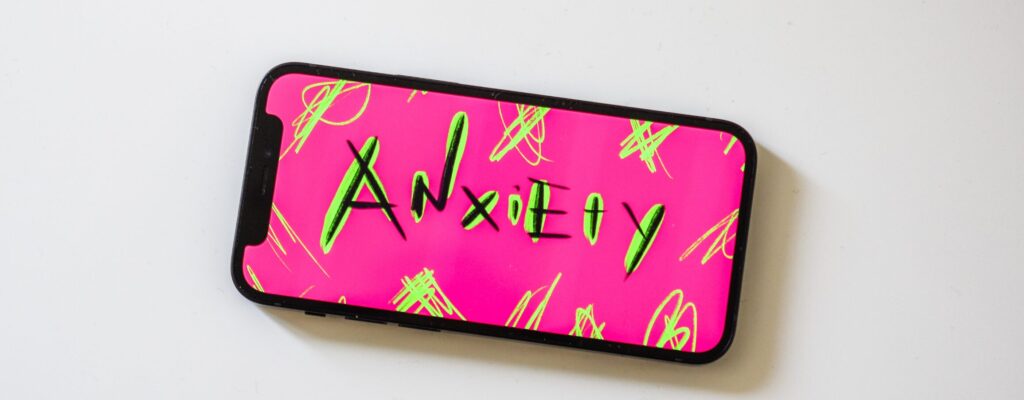Coping | IBD

 I was officially diagnosed with generalized anxiety disorder (GAD) several years before my Inflammatory bowel disease (IBD) diagnosis (but this condition haunted me for many years before my diagnosis). I like to think that I made a lot of progress with my anxiety before IBD flipped my world upside down, but I have no evidence to support this. In fact, I spent the months before my diagnosis in a heightened state of panic as I strived to ace my life as a full-time graduate student and full-time employee.
I was officially diagnosed with generalized anxiety disorder (GAD) several years before my Inflammatory bowel disease (IBD) diagnosis (but this condition haunted me for many years before my diagnosis). I like to think that I made a lot of progress with my anxiety before IBD flipped my world upside down, but I have no evidence to support this. In fact, I spent the months before my diagnosis in a heightened state of panic as I strived to ace my life as a full-time graduate student and full-time employee.
Those months were filled with diarrhea, fatigue, headaches, and stomach aches that I attributed to my anxiety and admittedly took as an indication that I was working my best (no pain no gain, right?). This was the odd thing about my relationship with anxiety at the time: I hated my anxiety disorder but I relished the success it could foster when channeled correctly. It helped me achieve things I might not have achieved without it. My anxiety also kept a darker and unacknowledged part of my psych at bay: my depressive tendencies. It is hard to pay attention to (or even notice) your depression when your head is constantly spinning with “what if” questions.
My GAD reached a new height when I was admitted to the hospital and began undergoing a battery of tests. I felt myself drowning in a violent flood of those “what if” questions. Some of these questions were directly related to this new trauma, but others were repetitions of my earlier, seemingly less important concerns with a new twist:
A million questions came hurling at my brain every second, pulling me into deeper despair.
During my very brief pre-IBD anxiety treatment, I learned how to challenge my anxious thoughts with logic. As a former varsity debate team member, this strategy seemed appealing at first. I could apply my debate skills to challenge my anxiety. Nevertheless, it did little to appease me. Regardless of how many logical points I used to debunk an anxious thought, my anxiety-ridden brain found a way to deceive me. I always recognized the erroneous nature of the scenarios my GAD threw at me, but the wave of anxiety flattened this logic like a tidal wave flattening a child’s sand castle.
My IBD diagnosis exacerbated GAD’s strategic advantage over logic. My anxiety had something new to latch onto and it held on as if its life depended on it. Every time I started to find peace of mind about my academic achievements, financial future, or health status, my GAD crept in like an ominous cloud, taunting me with everything that could go wrong. These thoughts became increasingly intrusive in my day-to-day life. When my anxiety convinced me that I would lose my healthcare coverage and run out of money, I became convinced that I could not spend a penny on anything unnecessary. A $1 library fine or a small rise in gas prices left me in a panic. I stopped socializing because I did not want to spend money on coffee, transportation, or any form of entertainment. Every medical bill nearly sent me over the edge.
My anxiety also tried to trick me into thinking every simple pleasure needed to be earned. It berated me when I tried taking a nap before finishing an assignment: Do you really think that you deserve a nap now? You will never get anything done if you keep up with these undeserved naps. There were also specific concerns related to my disease. For a while, I chewed my food until it practically dissolved in my mouth for fear that it would lead to a blockage. My anxiety made me superstitious (even though I consider myself a logic/data person). I did not want to answer questions about my health while in remission because my anxiety convinced me that saying I was “doing better” aloud would jinx me.
As I write this blog, my anxiety is at bay (relatively speaking). A combination of friend/family support, stable health, medication, and self care (in the form of daily reading time) has helped me reach a place where I can manage my GAD. It still lingers like a bully on the playground, but I have gotten better about walking away. Nevertheless, I cannot help but worry about if and when it will dominate me again. Will I be able to confront it if my health falters or I experience a setback?
I guess only time will tell. For now, I will focus on living in the moment and taking it one day at a time.
